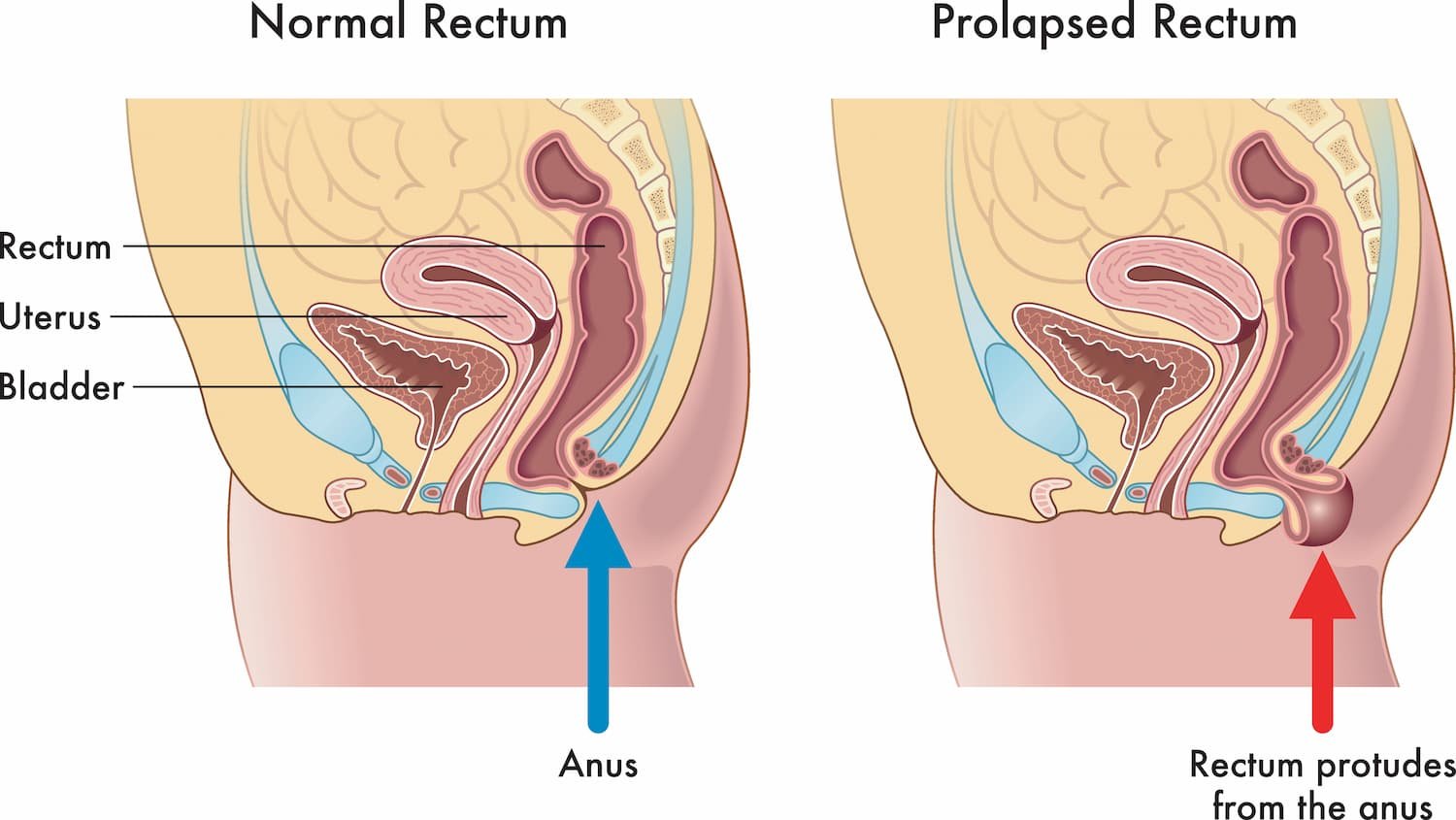Rectal prolapse
Rectal Prolapse Treatment - Diagnosis, Surgery & Recovery
Book Free Appointments With Our Expert Doctors Near You

Get consultation for 50+ diseases across India

Extensive medical assistance throughout your treatment

In-person and online consultation with experienced doctors
Rectal Prolapse Treatment - Diagnosis, Surgery & Recovery
Rectal prolapse is a serious proctological condition in which the rectum slides down through the anus. This condition can cause discomfort, pain, and embarrassment for those affected. If left untreated, it can lead to potential complications such as strangulation of the rectum, persistent bleeding, and the formation of ulcers, which can further worsen the patient's quality of life. Therefore, seeking timely treatment is essential to prevent these complications and restore normal functionality. At Total Surgicare, we specialize in providing advanced surgical treatments for rectal prolapse. Our team of skilled proctologists utilizes the latest medical techniques to ensure effective and long-lasting relief from the discomfort caused by this condition. Whether the prolapse is partial or complete, our personalized treatment plans are tailored to meet the unique needs of each patient, ensuring optimal care and recovery. With a commitment to patient safety and comfort, Total Surgicare strives to deliver high-quality medical care in a compassionate and hygienic environment. If you're experiencing symptoms of rectal prolapse, don't wait for the condition to worsen. Take the first step towards better health and a pain-free life.

No-Cost EMI

Support in Insurance Claim

Advanced Treatments

1-day Hospitalization

What is Rectal Prolapse?
The rectum is located at the end of the large intestine. It is the section of the digestive tract where the stool is held before it passes through the system. When the stool reaches the rectum, you may experience an urge to defecate. A group of muscles push the stool out of the anus. A rectal prolapse occurs when the rectum is pushed out along with the stool. The word ‘prolapse’ is used when any organ of the body slips from its original position.
Rectal prolapse is more common in women than in men and generally affects people over 50 years or those who have a history of chronic constipation or diarrhoea.

• Disease name
Rectal Prolapse
• Surgery name
Rectopexy
• Duration
15 to 20 Minutes
• Treated by
General Surgeon
Overview
Rectal Prolapse Diagnosis

The complete diagnostic procedure for rectal prolapse includes:
Physical Examination: In the physical examination, the doctor observes the rectum and may insert a gloved and lubricated finger in the anus to check the strength of the anal sphincter and the rectum. In this exam, the doctor will ask you to describe your symptoms and medical history to understand the condition better. They may even ask you to squat and strain as you do during the bowel movement. Based on the physical assessment findings, the doctor might ask you to get some other tests done.
Anal electromyography (EMG): This test lets doctors measure the effectiveness of muscles and nerves in the rectum. The doctors place electrodes a few inches into the rectum to perform this test. The procedure takes a few minutes.
Colonoscopy: This diagnostic procedure involves the insertion of a thin and flexible tube with a small camera (colonoscope) into the rectum to perform a visual exam of the area.
Anorectal manometry: In this test, doctors use a flexible tube which is the size of a thermometer and has a small deflated balloon attached to its end to measure the rectum’s response to pressure. The device is inserted into the rectum before conducting the test.
Barium enema: In the Barium Enema test, the doctors place a chalky liquid containing barium in the patient's rectum. The barium becomes visible on the X-rays, producing clear images of the area.
Defecography: In this test, the doctors use X-rays or MRIs to monitor your colon as you have a bowel movement.
Lower GI series: To perform this test, doctors place a chalky liquid containing barium in the patient's large intestine. This liquid helps doctors get a clear picture of the area on an X-ray.
Transit study: In this test, the doctor asks the patient to swallow one or more capsules that have markers on them. These markers can be seen on the X-ray. After swallowing the capsules, the patient has to appear for X-rays for the next 5 days. It helps doctors assess how the markers pass through the intestines.
Surgical Treatments for Rectal Prolapse
There are several surgical options for rectal prolapse:
1. Rectopexy (Abdominal Surgery)
2. Laparoscopic Rectopexy (Minimally Invasive)
3. Robotic-Assisted Surgery
Perineal Rectosigmoidectomy

Why choose Total Surgicare for Rectal prolapse Surgery?
Best Rectal prolapse Surgery Clinics
01.
Advanced Treatment Through Laser Surgery
At Total Surgicare, you can avail of advanced Rectal prolapse treatment surgery using a laser for better results and quicker recovery without any postoperative complications.
02.
FREE Appointment with Experienced Proctologists
At Total Surgicare, we have expert proctologists with 8-10 years of experience performing advanced Rectal prolapse treatment surgery with successful results.
03.
Quick Recovery With Effective Results
Total Surgicare team and doctors will stay in touch with you to provide ample support and proper care after surgery. We provide free follow-up consultations to all the patients to ensure they have a smooth recovery.
04.
End-to-end Process Assistance
Total Surgicare provides end-to-end process handling for all patients. From the beginning of the Rectal prolapse treatment to treatment conclusion, a care coordinator will remain in touch with you.

